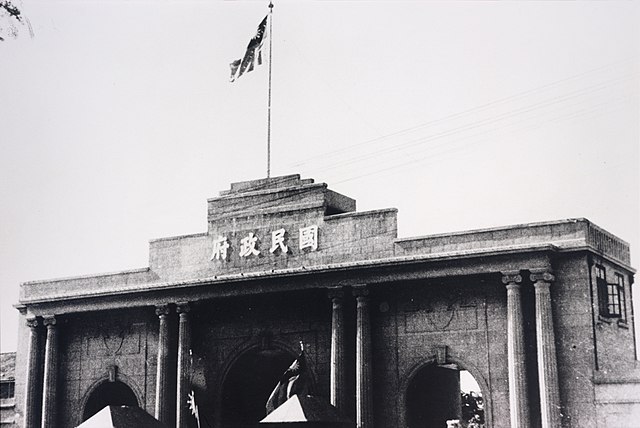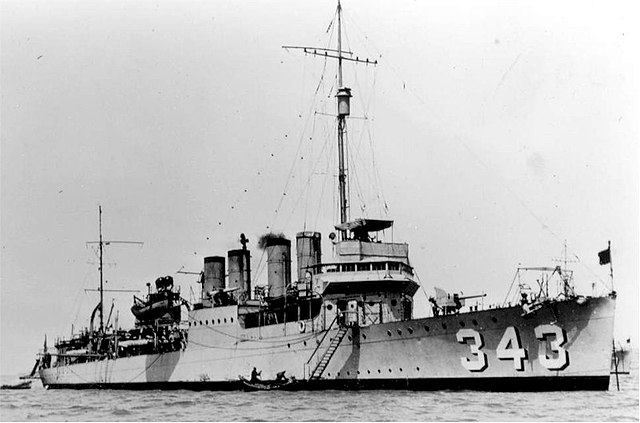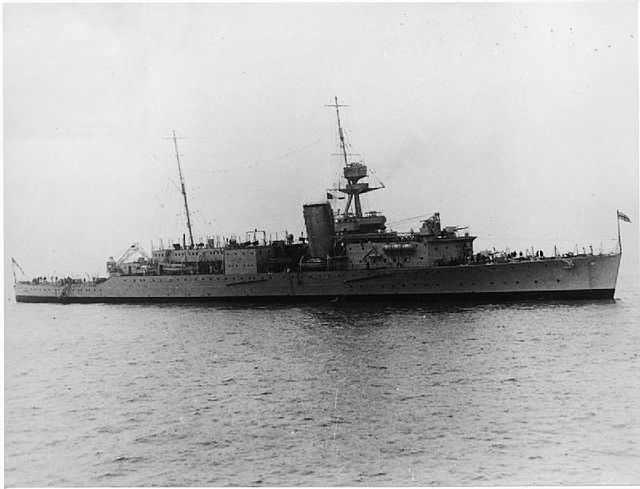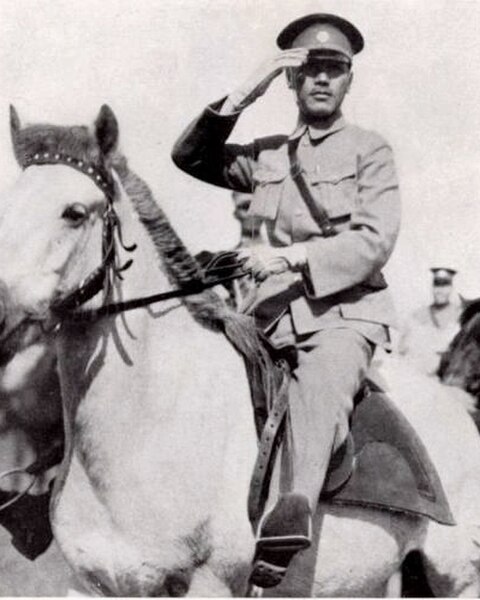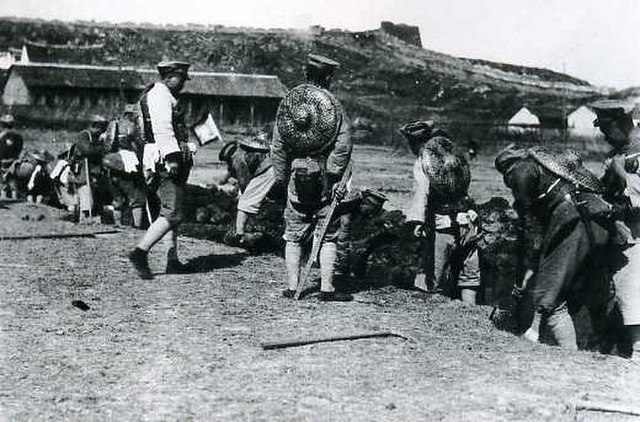The Nanking Incident occurred in March 1927 during the capture of Nanjing by the National Revolutionary Army (NRA) in their Northern Expedition. Foreign warships bombarded the city to defend foreign residents against rioting and looting. Several ships were involved in the engagement, including vessels of the Royal Navy and the United States Navy. Marines and sailors were also landed for rescue operations including some 140 Dutch forces. Both Nationalist and Communist soldiers within the NRA participated in the rioting and looting of foreign-owned property in Nanjing.
The Nationalist capital building in Nanjing, 1927
The American destroyer USS Noa.
The British cruiser HMS Vindictive
The Northern Expedition was a military campaign launched by the National Revolutionary Army (NRA) of the Kuomintang (KMT) against the Beiyang government and other regional warlords in 1926. The purpose of the campaign was to reunify China, which had become fragmented in the aftermath of the Revolution of 1911. The expedition was led by Generalissimo Chiang Kai-shek, and was divided into two phases. The first phase ended in a 1927 political split between two factions of the KMT: the right-leaning Nanjing faction, led by Chiang, and the left-leaning faction in Wuhan, led by Wang Jingwei. The split was partially motivated by Chiang's Shanghai Massacre of Communists within the KMT, which marked the end of the First United Front. In an effort to mend this schism, Chiang Kai-shek stepped down as the commander of the NRA in August 1927, and went into exile in Japan.

Clockwise from top-left: Chiang inspecting soldiers of the National Revolutionary Army; NRA troops marching north; an NRA artillery unit in combat; civilians showing support for the NRA; peasants volunteering to join the expedition; NRA soldiers preparing to launch an attack.
Generalissimo Chiang Kai-shek, commander-in-chief of the NRA, emerged from the Northern Expedition as the leader of the KMT and China.
NRA troops preparing to attack Wuchang (present-day Wuhan)
NRA forces enter the British concession at Hankou, October 1926

